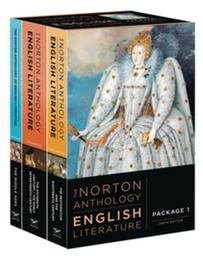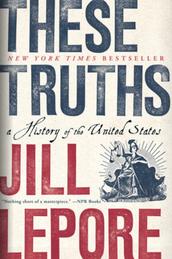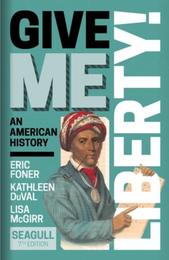
|
|
| Julia Reidhead (photo: Beowulf Sheehan) |
|
As it celebrates its 100th anniversary, W. W. Norton & Company stands out in the book business in many unusual, wonderful ways. Perhaps most important, Norton has stayed true to the ideals of the husband-and-wife founders of Norton--William Warder Norton and Mary "Polly" Dows Herter Norton--who wanted to democratize education and share the knowledge of the times with the broadest possible audience in works of enduring importance and quality.
Beginning in 1923 with the publication in pamphlet form of lectures delivered at the People's Institute, the adult division of Cooper Union in New York, and expanding quickly into general nonfiction and poetry, then fiction, textbooks, anthologies, books for professionals, and children's and YA, the ideals of the Nortons have been "present on every list," Norton chairman and president Julia Reidhead says.
Another important quality that distinguishes Norton is its employee-ownership structure. As Norton likes to say, it's the largest independent, employee-owned publisher in the U.S. (It may be the largest independent in the U.S., too.) The employee-ownership plan, which includes most staff members, was instituted by Polly Norton after her husband's death, "a very unusual move for 1954" but one that has allowed Norton "to be able to turn 100 in a way the Nortons intended the firm to be," Reidhead says.
Employee ownership gives the company an uncommon stability and focus as well as creates a culture of collaboration, shared purpose, and shared decision-making--and even a shared responsibility about such things as managing expenses. It helps keep staff mindful, Reidhead observes.
Another important part of Norton's success is that it has stayed smaller than some of its competitors, with about 630 people, including staff at the Scranton, Pa., warehouse and the field sales force. "The scale of our house is one of our great strengths," Reidhead says. "We know each other, and people spend their whole lives here."
 Reidhead herself is a sterling example of that. In 1983, she joined the company as a traveling college sales representative covering Ohio, Kentucky and Indiana. In 1984, she became assistant advertising manager of Norton's college department, and in 1986 became advertising manager. In 1988, she joined the editorial staff as associate editor for foreign language and freshman composition, then became editor, literature and composition, and in 1993, senior English editor, responsible for the Norton Anthologies. She edited the flagship Norton Anthology of English Literature, three editions of The Norton Shakespeare, The Norton Anthology of Literature by Women and The Norton Anthology of African American Literature, among others. In 1999, she became associate director of the college department, editorial director in 2007, and publishing director in 2014. She was named a v-p in 1993 and was elected to the board of directors in 1996. In 2016, she became president, and in 2020 she became chairman. She has also edited many books on the trade side, including works by Adrienne Rich, Pauli Murray, Russell Shorto, and Anne Enright (as well as Seamus Heaney on both the trade and academic sides). And she continues to edit--this fall Enright's new novel, The Wren, the Wren, will appear.
Reidhead herself is a sterling example of that. In 1983, she joined the company as a traveling college sales representative covering Ohio, Kentucky and Indiana. In 1984, she became assistant advertising manager of Norton's college department, and in 1986 became advertising manager. In 1988, she joined the editorial staff as associate editor for foreign language and freshman composition, then became editor, literature and composition, and in 1993, senior English editor, responsible for the Norton Anthologies. She edited the flagship Norton Anthology of English Literature, three editions of The Norton Shakespeare, The Norton Anthology of Literature by Women and The Norton Anthology of African American Literature, among others. In 1999, she became associate director of the college department, editorial director in 2007, and publishing director in 2014. She was named a v-p in 1993 and was elected to the board of directors in 1996. In 2016, she became president, and in 2020 she became chairman. She has also edited many books on the trade side, including works by Adrienne Rich, Pauli Murray, Russell Shorto, and Anne Enright (as well as Seamus Heaney on both the trade and academic sides). And she continues to edit--this fall Enright's new novel, The Wren, the Wren, will appear.
Reidhead notes the importance of so many Norton staff having come up through the editorial ranks and that she herself continues to edit. "This helps us better view what we'll publish and makes it a more collective experience," she says. "I always feel it's important to read and have opinions as a reader."
Reidhead is also busy outside Norton. She's on the board of the National Book Foundation, was chair of the board of governors of Yale University Press from 2012 to 2022, and just last month she became chair of the board of the Association of American Publishers.
 "I feel I stand on the shoulders of giants," Reidhead says. "The continuity at Norton is unusual." She adds: "But it's a kind of continuity that keeps us forward-looking and nimble. All of us at the company today follow in a long line of independent thinkers. Our tradition is to chart our own course each and every day."
"I feel I stand on the shoulders of giants," Reidhead says. "The continuity at Norton is unusual." She adds: "But it's a kind of continuity that keeps us forward-looking and nimble. All of us at the company today follow in a long line of independent thinkers. Our tradition is to chart our own course each and every day."
The trade and college publishing programs are also key to the company's success. Norton occupies "a space between the trade and academic world probably more than any other house in the business," Reidhead notes. "This synergy defines us and makes us unique in publishing." Most other trade publishers that had substantial college publishing operations have sold them.
In many cases, Norton authors' books are first published on the academic side or on the trade side and then find a strong audience in the other market. Among authors who have started on the trade side and whose work then finds a strong academic audience are Jill Lepore, whose These Truths, a trade survey of U.S. history, has just been adapted for the college market, with the textbook appearing in March, and Eric Foner, author of acclaimed trade books like the Pulitzer Prize-winning The Fiery Trial, whose college book Give Me Liberty!: An American History has become the leading textbook in the U.S. history survey category.
In the other direction, Norton commissioned Seamus Heaney to do a translation of Beowulf for the academic market. Beowulf: A New Verse Translation was later published as a trade title. The same happened with Emily Wilson's translation of the Odyssey. (In the fall, Norton is publishing Wilson's translation of the Iliad.)
 Over the years, the company has expanded and carried on the founding principles in a variety of ways, but has been very selective about new ventures both inside and outside the company. The Norton Anthologies, the first of which appeared in the early 1960s, were "essentially a new business creation," Reidhead says. They have become perennial bestsellers and used in classrooms around the world.
Over the years, the company has expanded and carried on the founding principles in a variety of ways, but has been very selective about new ventures both inside and outside the company. The Norton Anthologies, the first of which appeared in the early 1960s, were "essentially a new business creation," Reidhead says. They have become perennial bestsellers and used in classrooms around the world.
In the 1970s and 1980s, Norton founded Norton Professional Books, which are written by respected leaders in their fields and have a leading edge focus on mental health, education, psychotherapy & psychiatry and architecture & design.
At the turn of the century, "the world of digital courseware in the education market finally took off," Reidhead says, a move that was accelerated by the pandemic. As a result, Norton's investment here is paying off, and the company's digital educational offerings stand out because of its commitment to "the kind of editorial the company stands for." She acknowledges having "some stumbles, but I feel we've found our way in a marketplace that has largely abandoned the book." By contrast, Norton sees "the book, the author, the editor, the publisher as part of our DNA." Educational courseware is "a very significant part of our identity and business."
In 2018, Norton founded Norton Young Readers, focusing on books for ages three through middle grade and YA, selling into schools and the trade. (The colophon features a youthful Norton seagull with knobby knees.) This kind of publishing is "essential to the business," Reidhead says. "Norton grows readers for life, for their entire lifespan, and if we don't have children fall in love with reading, we soon won't have a publishing business."
The company has also made only few acquisitions of other publishers. In 1974, Norton bought the backlist of storied publisher Liveright, and in 2012, it revived the name as an imprint. Reidhead calls the Liveright list, edited for a decade by Robert Weil and now Peter Simon, "extraordinary."
 In 1996, Norton acquired Countryman Press, which specializes in a range of lifestyle categories, including wellness, cooking, travel, gardening, parenting, pet care, nature and more. The books are handsomely designed, often lavishly illustrated, authoritative and always engaging.
In 1996, Norton acquired Countryman Press, which specializes in a range of lifestyle categories, including wellness, cooking, travel, gardening, parenting, pet care, nature and more. The books are handsomely designed, often lavishly illustrated, authoritative and always engaging.
Norton also distributes more than a dozen distinguished publishers that the company "sells like we sell our own," as Reidhead describes it. "Our distribution clients are really important to us." Some of the distribution relationships go back many decades, such as with New Directions and Thames & Hudson. The distribution clients also include Abbeville Press, Albatross, Blue Guides, George Braziller, Inc. and Persea Books, CIRC, Fantagraphics, Kales Press, Penzler Publishers, Pushcart Press, Tilbury House Publishers, Tin House Books and Well Trained Mind Press.
"We like our client publishers to be complementary to Norton," Reidhead adds. "Our relations are warm and personal: we know the people and the books, and we're actively looking for more."

